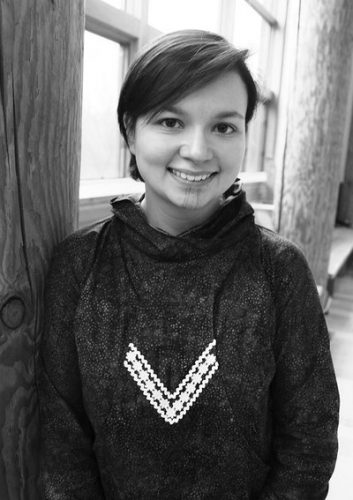
The daughter of an Alaskan Native airline pilot, who flew back and forth to Alaska, and a Norwegian mother from Minnesota, Sigvanna Topkok endured family fights at home and racist comments at school, as she grew up in several towns across Oregon, from Baker City to the coast. She spent childhood summers in her grandparents’ home village of Ambler, Alaska, where tribal traditions were suppressed in previous generations. “My grandmother was adopted out of the tribe,” she notes. “My dad passed away in a car crash when I was 11. Substance abuse was his way of coping.” Her own way of coping was to read a lot and do well in school. As a high school student in Vancouver, Washington, she took community college courses in Native American history, and was invited into the Native American Studies program at Dartmouth. “I had free tuition for low income,” she says, “and the tribe paid for books. Dartmouth is where I started healing.” She returned to Ambler every summer after college and spent a year in Nome with a nonprofit before starting law school at the University of Oregon. “I didn’t expect to go into law,” she says, “but it is the most direct way to create change. I want to promote tribal sovereignty, and especially to incorporate traditional law, how we handle conflict, to overcome problems in our community.” She worked last summer as an intern with the Department of the Interior in Washington, D.C., and she expects to spend more time in D.C., to gain experience, after graduating in 2017. Eventually, she hopes to work for her tribe.